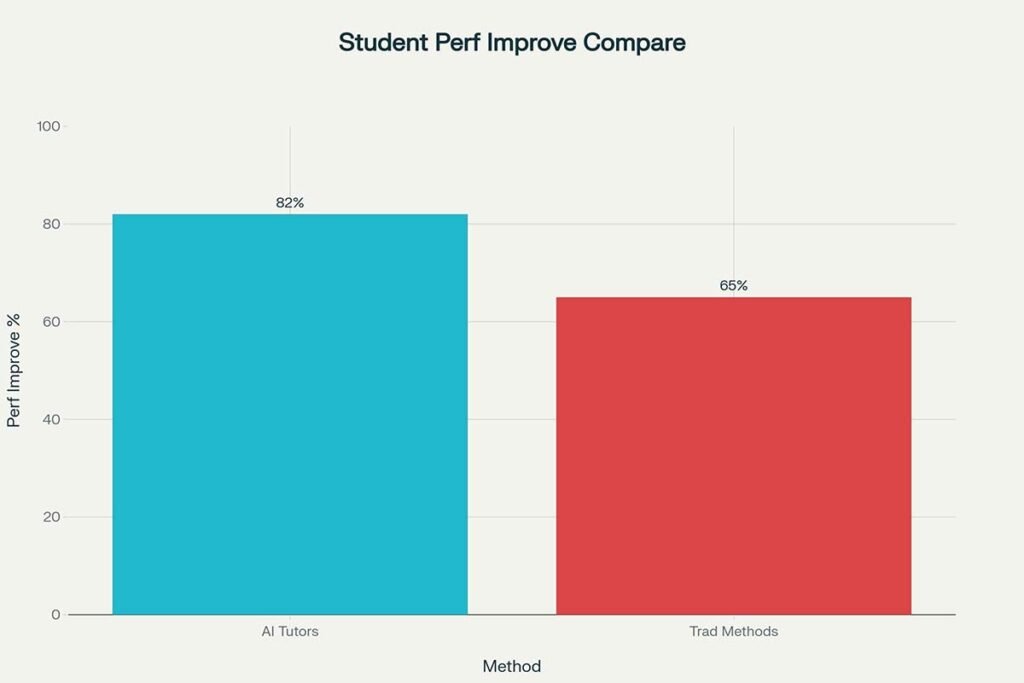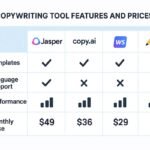How do you imagine a classroom in 2025? For millions of students worldwide, artificial intelligence isn’t just a futuristic buzzword—it’s the driving force behind smarter learning, personalized feedback, and unprecedented access to resources. As AI-powered tools reshape how teachers teach and students learn, education is entering its most innovative era ever.
But how is this digital revolution really helping learners? Is it creating new opportunities, or just another tech fad? In this blog post, we’ll unravel the story behind AI in education—exploring the top platforms, practical tools, emerging trends, and real-life success stories that are changing student lives in 2025. Let’s dive in and see what every learner and educator should know about this revolution!
What is AI in Education?
Artificial Intelligence in education means using smart computer programs to help students and teachers achieve better results. AI tools range from virtual tutors that answer questions instantly to sophisticated platforms that track student progress, recommend lessons, and even grade assignments automatically.
Key features:
- Personalization: AI learns how a student studies and tailors content accordingly.
- Instant Feedback: Students get answers and explanations without waiting for an instructor.
- Scalability: AI helps millions learn at once—removing barriers like geography or resources.
- Data-driven insights: Teachers can spot learning gaps and intervene early.
Key Trends Driving AI Adoption in Schools
Education is changing, and AI is fueling these shifts:
- Remote & Hybrid Learning: AI enables personalized learning anywhere, anytime—vital after the COVID-19 pandemic.
- Data Analytics: Schools analyze student progress, engagement, and predictions for improvement.
- Gamification: AI-driven games keep students motivated.
- Assessment Automation: AI assesses and grades written work or quizzes instantly.
- Inclusive Learning: AI tools adapt for diverse learners, supporting special needs and multilingual classrooms.
Table: Key AI Trends & Their Impact
| Trend | Impact on Students |
|---|---|
| Adaptive Platforms | Tailored lesson plans, reduced dropout rates |
| AI Tutors | 24/7 homework help, confidence boost |
| Gamified Apps | Higher engagement, better retention |
| Predictive Analytics | Early intervention, personalized support |
Best AI Learning Tools for Students in 2025
AI Tutoring Apps
Examples: Socratic (by Google), ChatGPT, Brainly Tutor
- Ask questions and receive instant, step-by-step explanations.
- Ideal for homework help, concept clarification, and on-the-go learning.
Adaptive Learning Platforms
Examples: Khan Academy, Squirrel AI, Duolingo
- Track progress and modify lessons based on student strengths and weaknesses.
- Offer personalized learning paths instead of “one size fits all” teaching.
AI Exam Preparation Solutions
Examples: Quizlet AI, PrepAI, ExamSoft
- Generate exam simulations and personalized quizzes.
- Provide feedback, highlight weak areas, and suggest study schedules.
Homework Help Bots
Examples: Photomath, Mathway, Chegg Study AI
- Scan problems with your phone and get detailed solutions.
- Promotes independent problem-solving skills.
Real-Life Examples & Case Studies
Case Study 1:
Priya, a high school student in India, improved her grades using ChatGPT for physics explanations. She credits step-by-step answers and interactive Q&A for making tough topics easy to grasp.
Case Study 2:
A Chicago public school implemented Khan Academy’s adaptive platform. Over 80% of students showed growth in math scores after teachers used AI-generated analytics to tailor interventions.
Case Study 3:
Special needs students in Spain accessed AI speech-to-text platforms for note-taking, increasing classroom engagement by 40%.
Benefits of AI for Students
- Personalized Learning: No more generic lessons; every student gets a unique path.
- Instant Feedback: Immediate answer to questions speeds up learning.
- Access to World-Class Materials: AI bridges gaps by making the best content universally available.
- Improved Engagement: Interactive tools like gamified apps make learning fun, not frustrating.
- Support for All Learners: Multilingual, special needs, gifted—all benefit from AI adaptability.
Bullet points:
- Reduces achievement gaps
- Helps shy students participate
- Enables self-paced study
- Fosters independent thinking
- Improves exam readiness

Challenges & Concerns
No technology is perfect, and there are challenges to consider:
- Data Privacy: Student information must be stored securely.
- Algorithmic Bias: If AI is trained with biased data, it may unintentionally reinforce inequalities.
- Over-Reliance: Too much tech can reduce social interaction and critical thinking.
- Equity of Access: Not all students have devices or internet access for AI tools.
Table: Common Concerns & Solutions
| Challenge | Solution |
|---|---|
| Privacy | Use encrypted platforms |
| Bias | Regular audits, diverse data |
| Access | School device programs |
| Over-Reliance | Blend AI with real-world projects |
Expert Opinions: AI in the Modern Classroom
“AI is the greatest equalizer in education since the advent of public school systems.”
— Sal Khan, Founder of Khan Academy
“Artificial intelligence can analyze millions of data points to personalize learning, but the human touch in teaching remains irreplaceable.”
— Dr. Ayesha Qureshi, EdTech Researcher
How to Start Using AI for Learning Today
- Assess Needs: Identify your biggest learning challenges and select tools to address them.
- Try Free Platforms: Start with free versions of AI learning apps—Khan Academy, Duolingo, Socratic.
- Join AI Education Communities: Facebook groups, Reddit forums, or Discord servers.
- Set Clear Goals: Use AI analytics to track progress, adjust techniques, and celebrate milestones.
Future Outlook: What’s Next for AI Education?
By 2030, experts forecast even greater disruption:
- Virtual Reality Classrooms: AI instructors guiding students in immersive 3D worlds.
- Voice & Emotion Recognition: AI that detects student frustration and offers encouragement.
- Global Collaboration: Students in different countries working together via AI-enabled translators.
- Lifelong Learning: AI tracking your skills and suggesting future learning paths across your lifetime.
AI’s journey in education is just beginning, promising more inclusive, personalized, and fun learning for all.
Frequently Asked Questions (FAQ)
Q1. How secure is my data when using AI learning apps?
A1: Reputable AI platforms use encryption and strict privacy policies to safeguard student data.
Q2. Can AI replace teachers?
A2: AI supports teachers but cannot replace the inspiration and mentorship of human educators.
Q3. Are AI learning tools expensive?
A3: Many platforms offer free versions or discounts for students, while premium features are optional.
Q4. What subjects benefit most from AI?
A4: Math, languages, science, and coding benefit most, but almost every subject can use AI-enhanced tools.
Q5. How do I avoid becoming too dependent on AI for learning?
A5: Balance AI-based learning with collaborative projects, discussions, and critical thinking exercises.
Q6. Can AI help students with disabilities?
A6: Yes! AI-powered speech recognition, text-to-speech, and adaptive content make learning accessible to all.
Q7. Which AI tutor is best for quick homework help?
A7: Socratic (for mobile devices), Photomath (for math), and ChatGPT (for overall guidance) are top picks.
Q8. How can parents or teachers monitor student progress on AI tools?
A8: Most platforms offer detailed analytics dashboards for monitoring results and engagement.
Conclusion & Next Steps
AI has truly transformed education, leveling the playing field and creating a future where every student can find their voice and thrive. From instant homework help to adaptive learning platforms, the possibilities in 2025 are limitless—and growing!
If you’re just starting out, begin with a free tool, explore what works for you, and don’t hesitate to seek community support. Remember: AI is a means to empower—never to replace—your unique learning journey.
Ready to unlock new learning potential? Explore our recommended AI study apps, join discussions, and share your own experiences below!




Pingback: Best AI Copywriting Tools Compared: Which One Is Right for You? (2025) - firstspost.com
Pingback: A Beginner’s Guide to Machine Learning: Concepts, Examples & Free Resources - FirstsPost
Pingback: AI for Digital Marketing: Campaign Optimization Strategies for 2025 - FirstsPost
Pingback: AI for Social Media Growth: Best Tools for American Influencers and Small Businesses - FirstsPost